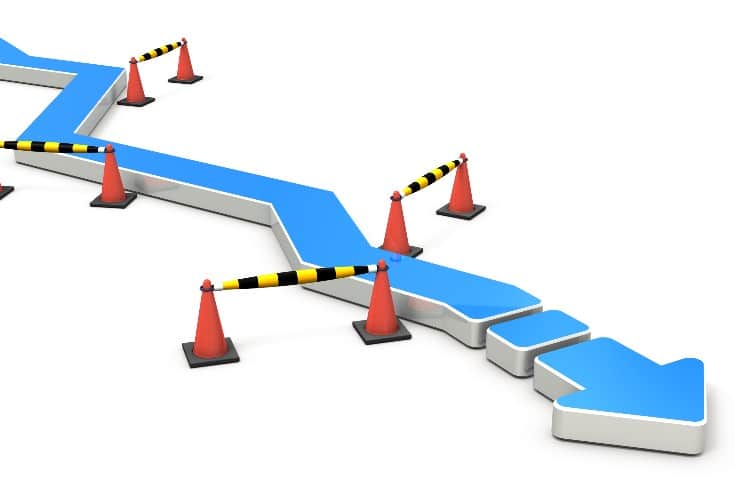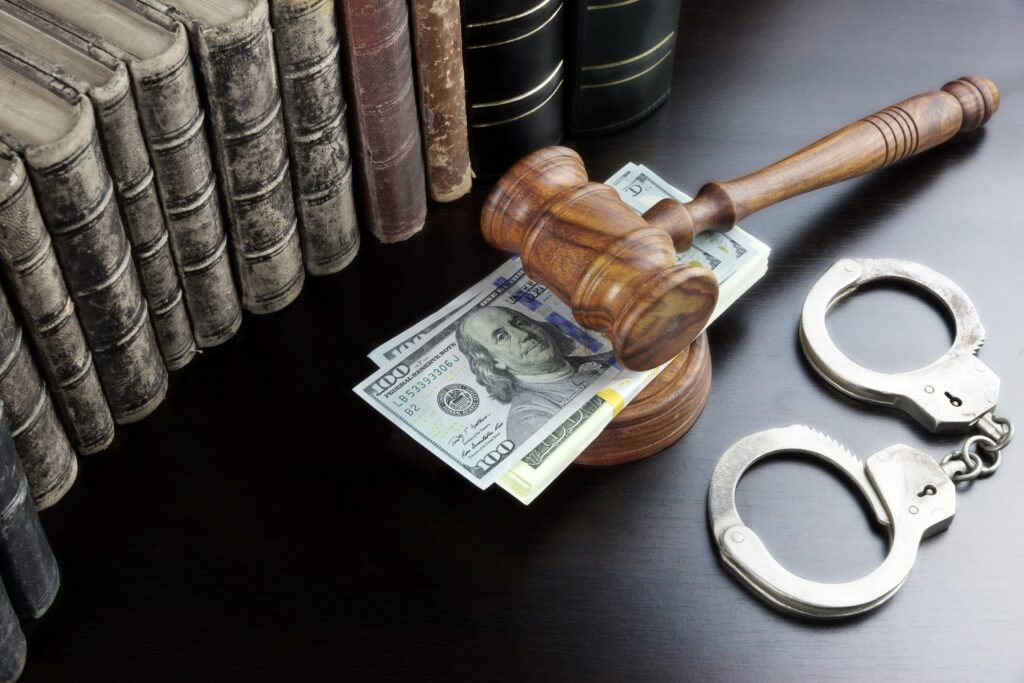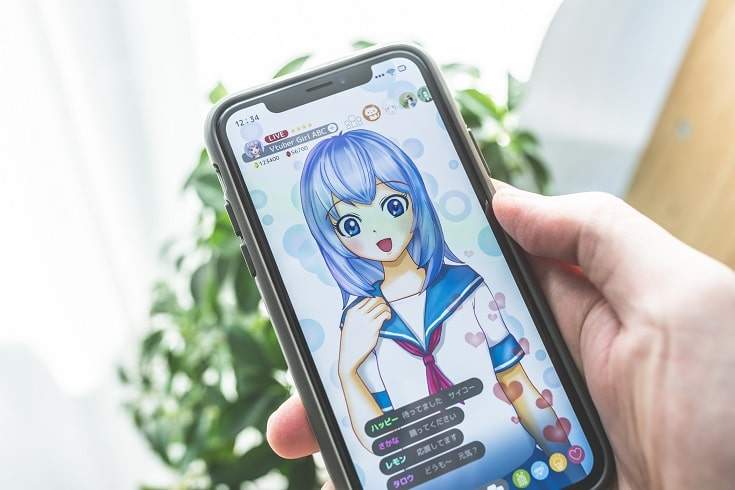What Should a Company Do When Defamed Online? What is the Japanese 'Crime of Defamation'?

When a company suffers from defamation on the internet, the crimes that could potentially be committed are primarily the following four:
- Japanese Credit Damage Crime
- Japanese Fraudulent Business Obstruction Crime
- Japanese Coercive Business Obstruction Crime
- Japanese Defamation Crime
In addition to these, we will also look at internet crimes including the Japanese Computer Damage and Other Business Obstruction Crime, which was added in 1987.
How Companies Should Respond to Defamation
Firstly, when a company is subjected to defamation, it becomes necessary to remove the posts or articles that caused the defamation. This can be done by contacting the site administrator to delete the article, or in the case of platforms like Twitter or Facebook, directly contacting the poster to request deletion. Additionally, the company can identify the perpetrator and file for damages for lost sales due to the defamation, or file a criminal complaint to have the perpetrator arrested. To prevent recurrence, it is highly effective to have the perpetrator promise not to post anything that would harm the company’s reputation again. However, if the site administrator does not delete the post even after being contacted, a provisional disposition can be carried out in court, which can result in the court ordering the administrator to delete the article.
For more details on provisional dispositions in cases of defamation, please refer to the article below.
https://monolith.law/reputation/provisional-disposition (ja)
Crimes Committed When a Company Suffers from Defamation and Slander
Defamation of Credit
The crime of defamation of credit is a law that protects economic and property credit. “Credit” refers to a broad social evaluation of the economic aspects of the subject, including the subject’s financial situation and payment ability.
The crimes of defamation of credit and obstruction of business by deception are stipulated in Article 233 of the Japanese Penal Code.
“A person who spreads false rumors or uses deception to defame another’s credit or obstruct their business shall be punished by imprisonment for up to three years or a fine of up to 500,000 yen.”
Article 233 of the Japanese Penal Code
Those who “spread false rumors” and “defame the credit of others” under Article 233 of the Japanese Penal Code are guilty of the crime of defamation of credit.
What is a “False Rumor”
“Rumor” refers to gossip, so if you spread false rumors or information, it becomes a “false rumor” and is considered defamation. In the case of the crime of defamation of credit, it is necessary that the content is “false”. If the content is true, you will not be charged with the crime of defamation of credit.
What is “Spreading”
“Spreading” refers to openly disseminating information to an unspecified number of people. Posting on the Internet is considered “spreading” because an unspecified number of people will see it. Expressions on the Internet are generally considered to be “public”. Also, as in the case of defamation, even if you only tell one person, if there is a possibility that that person will “propagate” it to an unspecified number of people, it can be equated with showing it to an unspecified number of people and could potentially lead to defamation.
What is “Person”
The subject of protection in the crime of defamation of credit is the “person’s” credit. In this case, “person” includes not only natural persons but also corporations and even groups without legal personality. Therefore, if you post something on the Internet that could damage the credit of individuals, companies, or groups, you could be guilty of the crime of defamation of credit.
What is “Defamation of Credit”
The credit in the crime of defamation of credit is different from the general meaning of credit and is limited to “economic credit”. This credit is not limited to social trust in a person’s ability or intention to pay, but also includes social trust in the quality of the products being sold (Supreme Court judgment of March 11, 2003 (Heisei 15)).
Furthermore, “defamation” refers to the act of lowering social evaluation in economic aspects, but it is not required that the evaluation actually be lowered. If a situation arises where there is a risk of this, the crime of defamation of credit will be applied.
Obstruction of Business by Fraud

Article 233 of the Japanese Penal Code states that anyone who uses “fraud” to “obstruct business” is guilty of obstruction of business by fraud. This is a crime with a very broad scope.
What is “Fraud”
“Fraud” refers to deceiving others or taking advantage of their misunderstandings or carelessness. A typical example is the case of an employee who posted a false rumor on Twitter that “a lion has escaped” immediately after the Kumamoto earthquake, and was arrested on suspicion of obstructing the business of the Kumamoto City Zoo by fraud. However, “fraud” is interpreted broadly and is actually considered to be “unfair means other than force”.
What is “Business”
“Business” refers to the tasks or operations that a person carries out continuously based on their certain position in social life, such as their profession or other social activities. There is no limitation like in the case of business negligence resulting in death. It refers to activities in social life, so personal activities, hobbies, and housework are not included.
What is “Obstruction”
Similar to defamation in the crime of credit damage, it is not required that the business is actually obstructed. If an act sufficient to cause obstruction is performed, the crime of obstruction of business by fraud applies.
The crime of obstruction of business by fraud is a crime where the scope of applicable cases is relatively difficult to understand. For example, it is said that some cases of so-called “impersonation” may also fall under the crime of obstruction of business by fraud.
https://monolith.law/reputation/spoofing-portrait-infringement-on-twitter (ja)
Japanese Coercion of Business Obstruction Crime
The Japanese Coercion of Business Obstruction Crime is defined in Article 234 of the Penal Code, following Article 233 which stipulates the crimes of Defamation and Fraudulent Obstruction of Business.
“A person who obstructs the business of another by force shall also be punished according to the preceding Article.” Penal Code Article 234
In other words, this crime consists of three elements: “using force,” “business,” and “obstruction.” There is a precedent for this from the Supreme Court on January 30, 1953.
The “obstruction” of business in Article 234 of the Penal Code does not require the actual occurrence of business obstruction, but is sufficient if there is an act sufficient to obstruct business. Furthermore, “business” does not only refer to the specific individual business that is being carried out in reality, but also broadly refers to the business that should be carried out in view of the position of the victim in the relevant business. The “force” in the same article is interpreted as the power of the offender, which is sufficient to suppress the free will of the victim, considering the offender’s vigor, number of people, and surrounding circumstances. Moreover, this power is sufficient if it is objectively sufficient to suppress the free will of the victim, and it is not necessary that the victim was actually suppressed in their free will.
Supreme Court decision, January 30, 1953What is “Force”
“Force” refers to “the power of the offender, which is sufficient to suppress the free will of the victim, considering the offender’s vigor, number of people, and surrounding circumstances,” and includes lighter actions than assault or threats. For example, actions such as scattering dozens of cockroaches in a supermarket or calling for a refusal to stand up in opposition to the national anthem at a graduation ceremony are considered to be “force.”
What is “Business”
“Business” refers not only to “the specific individual business that is being carried out in reality,” but also broadly refers to “the business that should be carried out in view of the position of the victim in the relevant business.”
What is “Obstruction”
“Obstruction,” as mentioned in the explanation of the Fraudulent Obstruction of Business crime, is considered sufficient if there is an “act sufficient to obstruct business,” without requiring the actual occurrence of business obstruction.
With the spread of the Internet, there has been an increase in cases where charges are brought for business obstruction due to postings on the Internet. It is difficult to judge whether it falls under force or fraud, but the former is an act of obstructing someone’s business by direct, tangible methods, and the latter is an act of obstructing someone’s business by indirect, intangible methods. However, the actual boundary line is unclear.
There have been cases where people have been arrested for the crime of Coercion of Business Obstruction against the police by anonymously posting crime warnings on bulletin boards, such as “I have planted a bomb at XX station,” causing unnecessary security and vigilance. On the other hand, there have been cases where the establishment of the crime of Fraudulent Obstruction of Business was recognized for posting “I will commit indiscriminate murder in Americamura at 3 o’clock on June 16,” causing the police to carry out vigilance activities and obstructing the normal execution of business. (Osaka High Court decision, October 22, 2009 (Heisei 21))
For more details on this issue, please refer to the article below.
https://monolith.law/reputation/charge-of-forcible-obstruction-of-business (ja)
Defamation Crime (Japanese “Meiyo Kison Zai”)
Defamation is a crime that lowers someone’s social reputation by stating facts.
“Anyone who publicly states facts and defames another person’s honor, regardless of whether the facts are true or not, shall be punished with imprisonment for up to 3 years or a fine of up to 500,000 yen.”
Article 230, Paragraph 1 of the Japanese Penal CodeThe major difference between defamation and crimes such as credit damage and business obstruction is that in the case of defamation, “the crime is established even if the content is true”. For example, if you post that “the director of XX hospital is having an affair”, even if it is true, it could potentially be defamation due to slander. The key point is whether there is an objective fact that the victim’s personality, reputation, credit, and other personal values have been socially degraded due to the problematic post.
However, even if the expression in question lowers the social evaluation of a specific person, if it demonstrates a fact related to a specific public interest (public nature), its purpose is solely to serve the public interest (public interest), and the fact stated is true (truth) or there is a reasonable reason to believe it is true (truth equivalence), the illegality is negated and defamation is not established.
Also, defamation is a “complaint-based crime”, so unless the victim files a criminal complaint, the offender will not be prosecuted. This is a major difference from the other three crimes.
Furthermore, if you “spread false rumors” and “damage someone’s credit”, it often also lowers the social evaluation of the target. In this case, both credit damage and defamation are established.
This situation, where two crimes are established by one act, is called “conceptual competition”, and the heavier penalty is applied.
The penalty for credit damage is “imprisonment for up to 3 years or a fine of up to 500,000 yen”, and that for defamation is “imprisonment for up to 3 years or a fine of up to 500,000 yen”, so in the case of conceptual competition, the penalty for credit damage is applied. However, in reality, there is almost no difference in this case.
https://monolith.law/reputation/defamation (ja)
What is “Infringement of Honor” in Civil Law?
While this article explains criminal procedures, in civil cases where deletion or identification of the poster is sought, it is often claimed that the right to honor (≒ defamation) has been infringed. For example, slander against a company, such as calling it a “black company”, can be claimed as an infringement of the right to honor if certain conditions are met. This is explained in detail in another article.
https://monolith.law/reputation/black-companies-defamation (ja)
When an act that infringes on honor is committed, if the victim is a company or organization, whether compensation for mental distress, known as consolation money, is recognized is explained in detail in the following article.
https://monolith.law/reputation/honor-infringement-and-intangible-damage-to-company (ja)
Japanese Computer Damage and Business Interference Law
In 1987, as computer operations began to replace human operations, the Japanese Computer Damage and Business Interference Law was added to Article 234 of the Penal Code.
“Anyone who damages an electronic computer or electromagnetic record used for human operations, or gives false information or improper instructions to an electronic computer used for human operations, or by any other means, prevents the electronic computer from performing its intended operations, or causes it to perform operations contrary to its intended purpose, thereby interfering with human operations, shall be punished by imprisonment for up to 5 years or a fine of up to 1 million yen.”
Article 234-2 of the Penal CodeThe act of damaging a computer or data used for business, causing a computer to execute false data or improper operations, or preventing it from performing its intended operations or causing it to perform operations contrary to its intended purpose, thereby interfering with business, constitutes the Japanese Computer Damage and Business Interference Law.
Acts such as carrying out a DoS attack and interfering with service provision by a computer, or illegally manipulating programs or data on servers owned by online game operating companies for the purpose of RMT, also fall under this law.
What are the impacts of defamation on businesses?
Companies may suffer damage due to defamation for unjust reasons, such as a decline in their social reputation and credibility, difficulty in selling their products, and so on. Furthermore, the employees working in these companies may find it difficult to work and may leave the company, potentially leading to a crisis of the company’s survival. In addition, the decrease in a company’s social reputation due to defamation can result in future disadvantages, such as the inability to attract the highly valued talent that is crucial for the company.
Summary
In addition to what we have introduced in this article, online defamation can potentially constitute various crimes. However, each crime has its own unique discussions, such as the fact that intimidation crimes generally do not apply to corporations, and specialized knowledge is inevitably required to make a judgment.
Even for defamation that is carried out without clearly identifying the target, it may be possible to question defamation, insult, and privacy infringement.
https://monolith.law/reputation/defamation-privacy-infringement-identifiability (ja)
If your company has been a victim of online defamation, please consult with our experienced attorneys on how to respond and what charges can be brought against the perpetrator in cybercrime.
Category: Internet





















